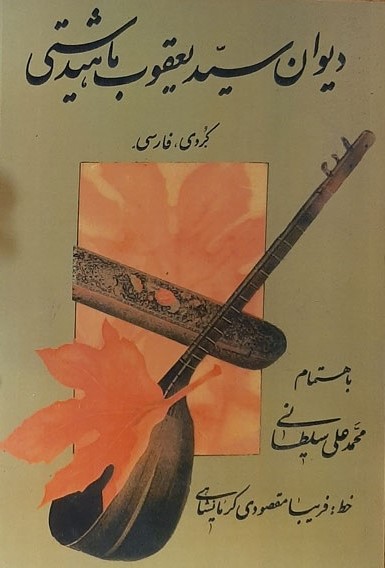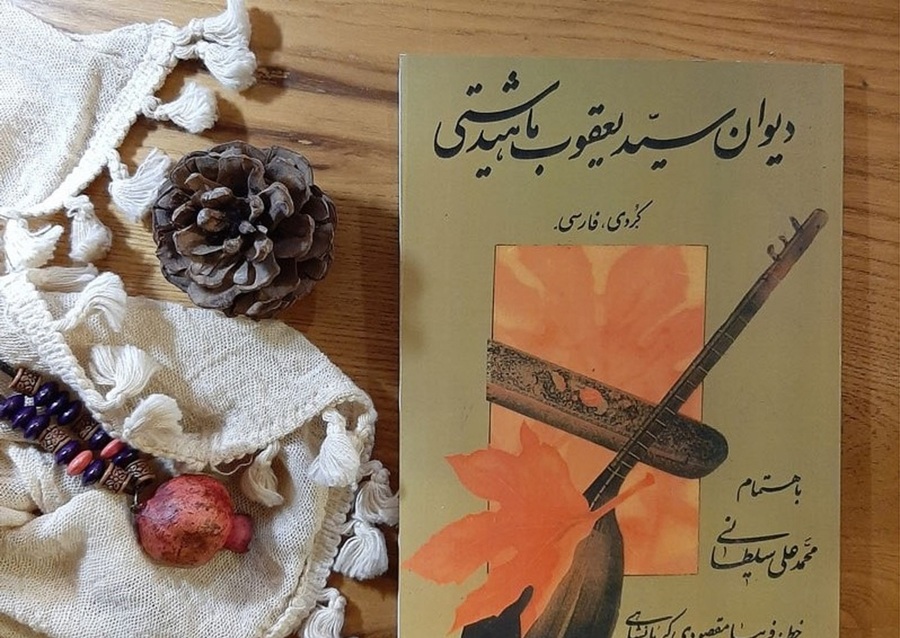Dr. Azad Mukri
In Kurdish literature, there are many poets who lived in the southeastern part of East Kurdistan and wrote great poetry. However, their writing style is different from that of poets in the northern part of the eastern part of Kurdistan and South part of Kurdistan. In the poetry of the poets of the northern part of East part of Kurdistan and South part of Kurdistan, most of the poets after Nali, Mahvi, and Haji Qader Koyi followed them in terms of form and wrote poetry within the framework of Arabic rhyme. These poets have tried to experiment with most of the poetic forms such as Ghazal, Qasida, Chwarina, Dubayti, and other classical forms. In terms of content, their poetry was between mysticism, Ghanaian poetry, and less social poetry. Nali, for example, has tried all these fields. He has Madhia (praises) poems for the prophet and the saints, romantic poems, and also social and even erotic poems. Mahvi has experienced the two poles of Ghanaian and mystical poetry while Haji Qader Koyi mostly has committed social and national poems.
After them, the same space dominated Kurdish poetry until the poets of the Kurdistan Republic. However, in the southern part of the eastern part of Kurdistan, poetry has long faced other rules. Most of the poems of Yarsan poets recorded in the history of Kurdish literature are written in the Hawrami dialect and paragraph weight. The same structure and space can be seen in the Kurdish Shanama. The same is true of Almas Khan Kandulayi's Fatihnama Nadri. People like Ghulamreza Arkavazi, Mawlawi, Besarani, and many other poets of the southern part of the eastern part of Kurdistan have not used the weight of Arabic poetry. This has led to a similarity in the expressions of most of these poets. On the other hand, these poets wrote all their poems in the format of the Masnawi. In other words, the Masnawi was a form of expression of epic poems and also enthusiasm, romantic, and Ghanaian poetry. It has been used for mourning and poems. It has been used to describe nature and to write religious poems. However, there were different templates for each style in the northern part of the eastern part of Kurdistan. Ghazal is a form of love poetry, Qat'a is a form of the social poem, and masnawi is a form of storytelling and more.
But there were poets who deviated from all these rules. In other words, they have neither limited themselves within the framework of the laws of poetry in the southern part of the eastern part of Kurdistan nor deprived themselves of the opportunities of poetry in the northern part of the eastern part of Kurdistan. On the one hand, their poetry has remained in all the descriptions we have, from the terms and templates to the atmosphere of the content of the poetic discourse, and has not left that space and atmosphere. On the other hand, they have written poetry in other dialects, such as Sorani. Although it may have been difficult for that part of Kurdistan to experiment in this field, people like Sayd Yaqub Mahidashti did it.
Sayd Yaqub Mahidashti was born 220 years ago in the Mahidasht region of Kermashan. His ancestry goes back to the Sayids of Samarra, Iraq. Sayd Yaqub, also known as Sayd Yaqo, was a Shiite Muslim from the Kalhor tribe. He completed his education in Kermashan, Bestoon, Tehran, Shiraz and, Qom. After completing his studies, he was employed as a writer in the headquarters of Mohammad Hussain Khan, the ruler of Kalhor, and remained in this profession until the last moment of his life.

The poet was also a calligrapher and a talented tambourine player. Sayd Yaqo's poetry was very popular among the Gorans and his style and the way of his view compared to previous poets, we can say that he was more influenced by Khana Ghobadi and Almas Khan. However, his work has been more extensive than theirs and, as we have already said, he has expanded the field of his poetic language by experimenting with other languages such as Laki, Kurmanji, and Sorani. For a poet who lived two centuries ago and the country was at the height of its religious conflict, this is an important work and shows the importance of language and nation over other areas of life. The interesting thing about Sayd Yaqub's poetic life is that his geography of reading was wider than that of the poets of the southern part of the eastern part of Kurdistan. He was very interested in the poetry of Sorani poets. Most importantly, he was familiar with the poetry of Nali of Sharazoor and considered him his teacher, and even he wrote poetry in imitation of his works.
In verse poetry, as mentioned, he is one of the pioneers in the field of verse love poetry, and his poems can be compared to the poems of Mawlawi Tawagozi, Besarani, and Mirza Abdulqader Pawayi. An example of these poems is the poem "Dla Damani", which derives both the repetition of sentences and phrases and the way of looking at the beloved from the discourse of this type of poetry.
In this poem, which is also sung by the famous singer Sharam Nazeri, the tradition of poetry of the southern part of the eastern part of Kurdistan is well seen and of course, Sayd Yaqub has tried to use words and phrases from other regions.
In the famous poem "New Spring Season", he generally deviates from the tradition of Hawrami-Gorani poetry and writes in the style of Nali and Mahwi:
As soon as the new spring season leaves the cup of wine
The spring of the sweet life gets the winter season
Drinking wine is so nice that when a beggar drinks it
He is ostentatious to kings Jamshid and Qubad
Blessed is the drunk who has spent his life
On his lover, wine, Harp, and flute
The mystics would not listen to your advice
When does the poor find his place in the bottomless sea of Luja?
The creator knows that Sayd did not taste the wine
I will walk the path through my mind and imagination









